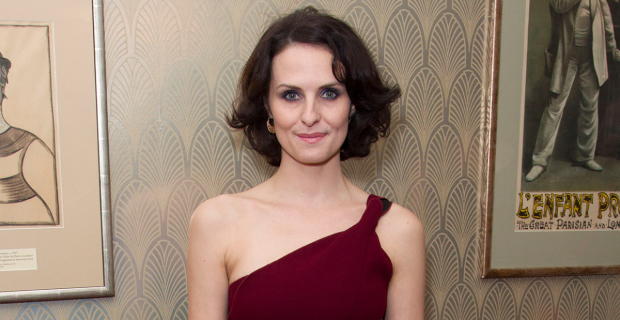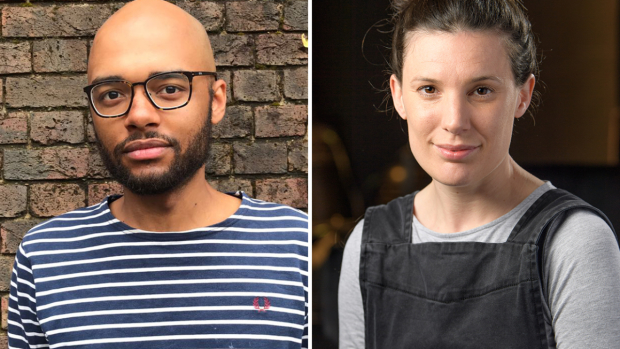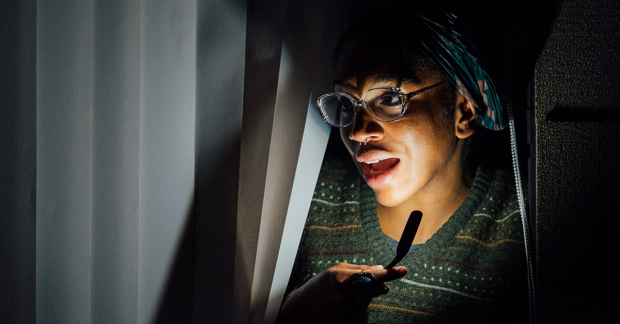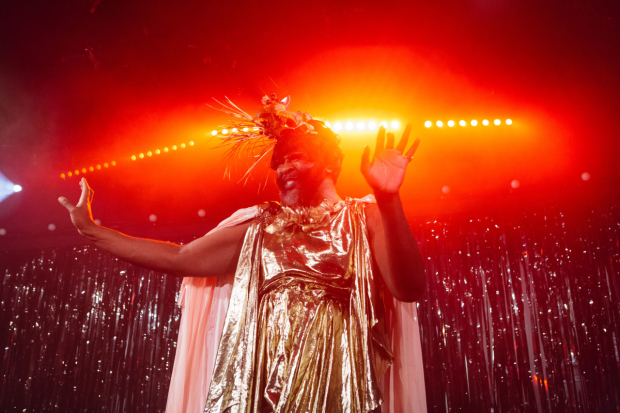Review: Dear Elizabeth (Gate Theatre)
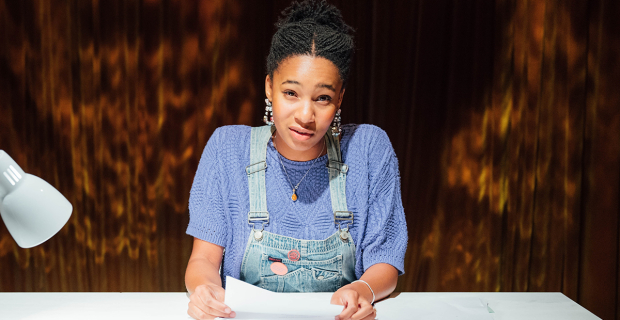
© Helen Murray
Before the opening night of Sarah Ruhl's two-hander Dear Elizabeth at the Gate Theatre, actors Jade Anouka and Jonjo O'Neill had never met. They hadn't rehearsed together for the 100-minute play they were about to perform. They were handed a wad of script, a lamp and some basic instructions. And then they began. And so here is the twist in Ellen McDougall's staging of Ruhl's text: for every night of the show's run, new actors will take on the roles of Elizabeth Bishop and Robert Lowell.
Chronicling the 400-letter and life-long correspondence between the poets Bishop and Lowell from 1947 to 1977, the play may have, in another director's hands, been a straightforward examination of two of the most eloquent individuals of the last century, expressing their unique love for one another creatively, emotionally and over the space of decades. But in McDougall's iteration, it's about something completely different: an ode to the way in which performing together can allow actors to become close, even when they are completely unprepared. Simultaneously the show is a first table read and a final production.
On Moi Tran's set (which feels like a slightly strange cross between a hospital waiting area, a karaoke bar and the Red Room from Twin Peaks), the two actors are reading the lines for the first time as they deliver them – the words pour forth as letter after letter is traded between the two. Not only that, there are also stage directions in the script, added by McDougall, for the performers to follow – to throw cornflakes at each other, or dance erotically while covering themselves in water.
It's a form that's been used before in plays like Tim Crouch's An Oak Tree (Crouch is, coincidentally, one of the performers billed to appear later in the show's run) and acts as a thorough examination of how performance works, and how character is created. It is most fascinating when an actor reacts to what they're reading – raised eyebrows, sighs of exasperation or chuckles of realisation. Nothing in the performance is pre-meditated, and as a result becomes all the more enthralling.
The personas of Bishop and Lowell reflected those of Anouka and O'Neill – Anouka measured, unwavering and quietly optimistic as she reacts both to Bishop's letters and Lowell's, while O'Neill is incessantly studious, sometimes self-conscious, ever so often fingering his glasses. It'll be remarkable to know how the various other Bishops and Lowells come to life across the remaining nights of the run.
It's a production that could have completely tripped over itself. But through careful work by McDougall and her team (who rehearsed the show with dummy performers to make sure the script was watertight for the first-timers), the actors are gently coaxed into creating a complicated, fraught relationship between two individuals not averse to speaking openly with one another. It's less of a play about two poets, and more of a play about communication, and how, as an audience, we can be drawn into a bond that up until mere moments ago never existed. By the end, Anouka and O'Neill treat one another like life-long friends.
The pace has a tendency to flounder, there are small hesitations as actors double-check they're doing the right actions. It's in those moments the story of the two poets ebbs away. But this is as live as theatre can come – entirely within the moment, simultaneously mightily well coordinated and completely improvised. Worth watching for the novelty alone.



